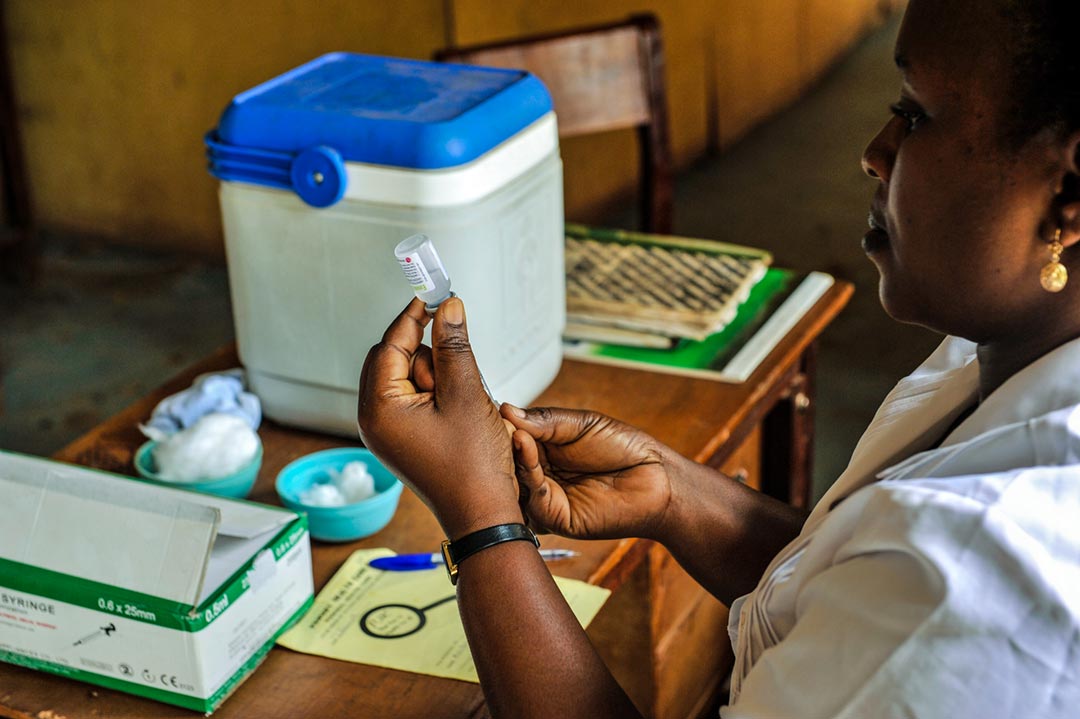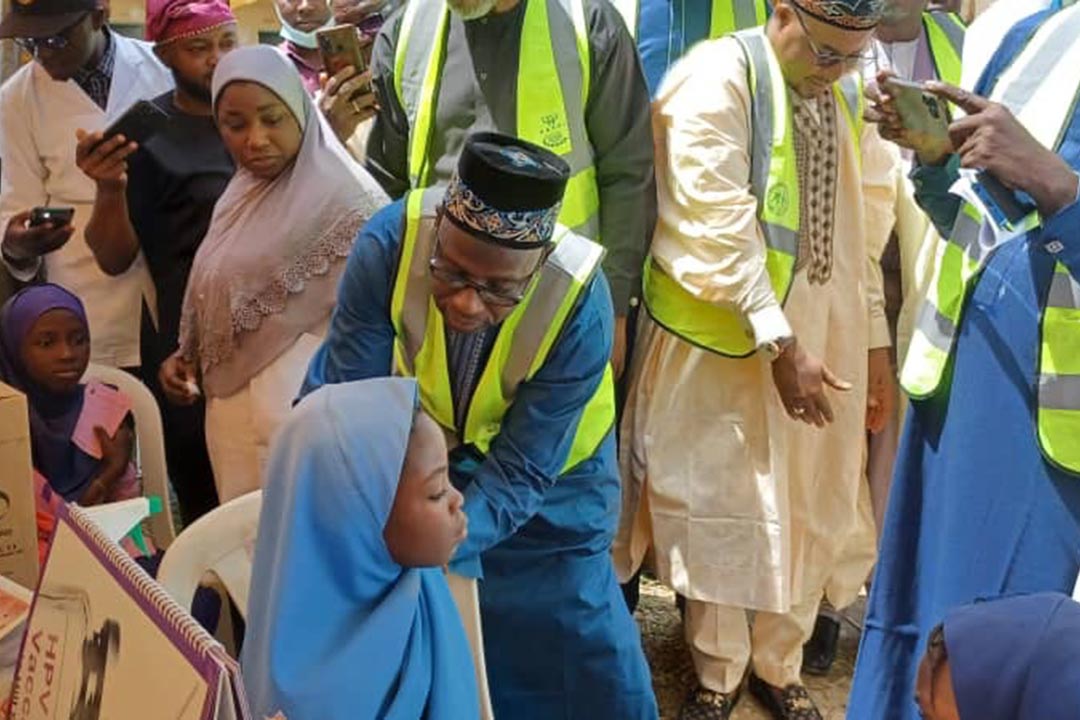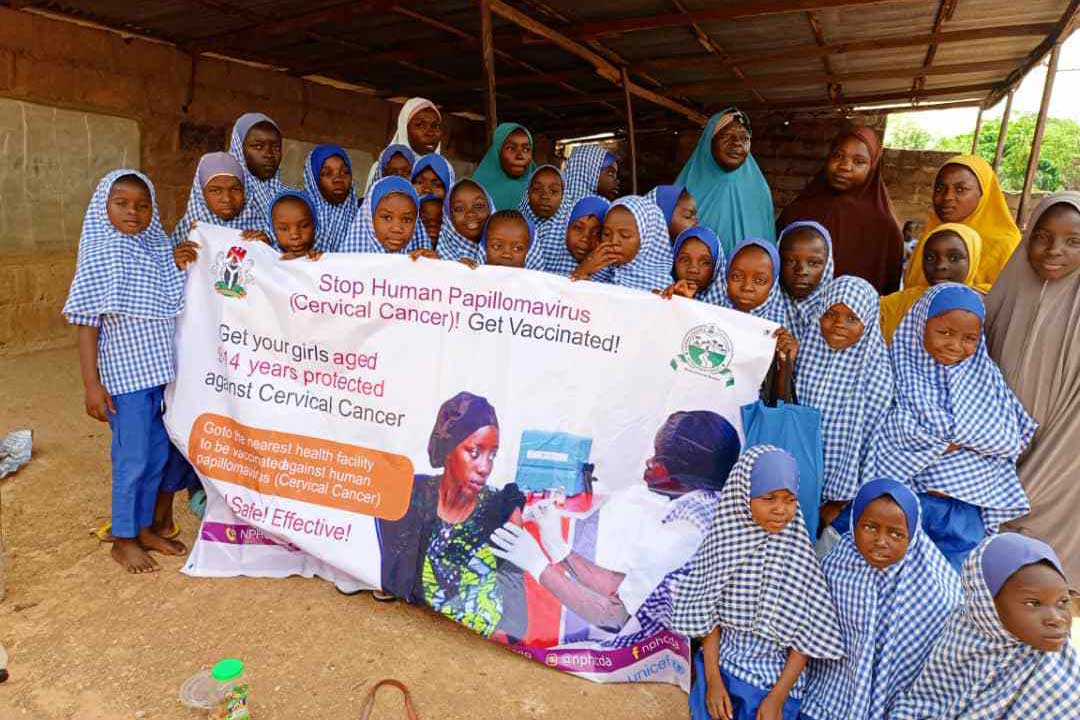How to prevent an election-demic
As 93.4 million Nigerians gather to elect a new president this week, experts hope political temperatures will be the only ones spiking at the ballot box.
- 22 February 2023
- 7 min read
- by Eric Dumo

Election day is looming, and Dr Femi Asunloye has barely rested in a month.
Asunloye is a senior registrar at the Federal Medical Center Owo in Nigeria's Ondo state, a region hard-hit by the Lassa fever outbreak that has killed 37 Nigerians and infected 244 so far this year. He's worried it could be about to get worse.
Some 93.4 million Nigerians are expected to head to the polls on February 25 to elect a new president and vote in a new National Assembly. Millions will travel, millions will cluster.
“As people migrate from one place to the other to vote, the risk of transmission of infections will be high through the introduction of diseases and germs in the air."
Dr Japhet Olugbogi, virologist and primary health specialist
Ondo alone has 1.9 million voters on the rolls. To the young medical doctor, that sounds like an epidemiological risk. So for the past month, Asunloye and a handful of his colleagues have sacrificed their free time to mount an information campaign that they hope will head off a spike in cases.
"Somebody had to take the message of health safety to the people as we approached this election," Asunloye says. "Already, a lot of people have returned to various communities across Ondo State to vote in the exercise. As health workers, we understood the implication of this well ahead of time and that was why we embarked on creating awareness among the people on how to avoid contracting Lassa fever – especially at this time where there will be increased physical contact."
Lassa fever is an acute haemorrhagic fever, whose causative virus is spread from rats to humans when humans come into contact with rat urine or droppings, usually when food sources are contaminated. It can also spread human-to-human through contact with infected bodily secretions. When large numbers of people are on the move, massing together, straining sanitary systems, the risk of spread rises.
"We have the personnel and capacity to detect and handle any surge in infections if such ever happens.”
Dr Bunmi Ilori, consultant on infectious disease, Lagos State Teaching Hospital
"We have been educating people to avoid the direct tasting of unprepared meals either at home or in the market. Food items should be stored in rodent-proof containers to prevent any contact with rodents," Asunloye says.
"People with fever have been encouraged to report at a health facility or reach out to a doctor for treatment. Those with persistent malaria symptoms have been advised to offer themselves for Lassa fever screening. Bodily contact with persons already infected with Lassa fever has been strongly discouraged.
"We have spent the past weeks hammering this into the ears of members of the public within our jurisdiction and we believe this is already leading to attitudinal changes among the people," he says.
Election fever?
Lassa fever is not the only infectious disease circulating in Nigeria this election season. In January 2023 alone, Nigeria recorded 17 cholera deaths from 429 suspected cases spread across 11 states. In 2022, measles killed more than 230 in the country, causing tens of thousands of suspected cases. This year so far, diphtheria has caused 38 deaths from 123 confirmed cases. COVID-19 trundles on. For expert onlookers, that's a worrying backdrop for a national vote.
"As people migrate from one place to the other to vote, the risk of transmission of infections will be high through the introduction of diseases and germs in the air. This risk will be further heightened as people make bodily contacts at the polling units on election day," says virologist and primary health specialist Dr Japhet Olugbogi.
In Lagos, Nigeria's populous commercial capital, Dr Bunmi Ilori is keeping an eye on mpox, still simmering after last year's spike.
"Even though we have managed to bring spread under control in recent weeks, we are not certain what might happen as people move from one place to another to vote," said Ilori, a consultant on infectious diseases at the Lagos State Teaching Hospital.
Have you read?
Prevalence levels are low now, he explained, and to keep things that way medical workers in most state hospitals are sensitising the public on the need to avoid body contact with others to stop the spread of the viral sickness.
"However, we have the personnel and capacity to detect and handle any surge in infections if this ever happens," Ilori said.
Volunteer virus-fighters
Health workers are not the only ones striving to prevent an explosion of viral diseases during the vote. A handful of volunteer groups have also raced to the frontlines to raise health safety awareness ahead of the democratic exercise.
Yiaga Africa, a non-profit group promoting good governance will dispatch dozens of volunteers across Nigeria's 36 states, and to Abuja, for election duties. Samson Itodo, Executive Director of the organisation, says they will also be working to make sure voters cast their ballots under safe and hygienic conditions.
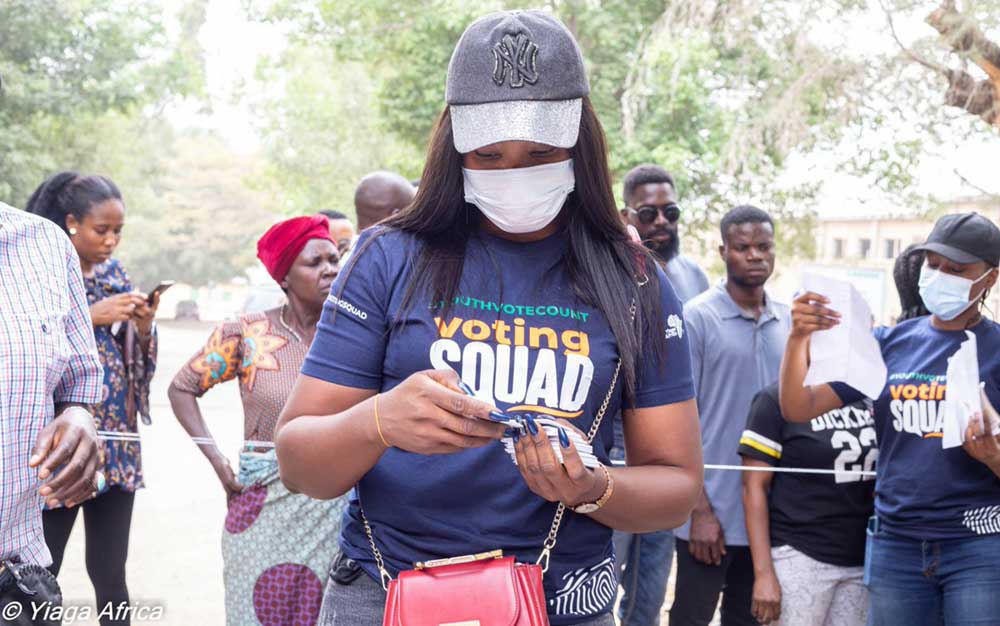
Credit: Eric Dumo
Recent history – an object lesson in epidemic control – is on their side, Itodo says. "This election is coming not too long after Nigeria's battle with coronavirus, so we will be complying with COVID guidelines on safety.
"Things like hand sanitisers and nosemasks are essential items that we have provided to our team members ahead of this election assignment," he says. Volunteers will also be armed with a health manual, he adds.
Obinna Osisigu, convenor of WeVote, a volunteer organisation promoting voter participation in elections, echoes him. "During COVID outbreak, we had measures in place to protect our volunteers. We are simply going to be reactivating those safety measures," he said. WeVote will be sending out 32 volunteers to polling sites on both February 25 and on March 11 – when the state governorship and parliamentary polls will be held.

Credit: WeVote
Mutually-assured protection
Still, awareness drives can only go so far. A lot will finally depend on the voters themselves. "The key to avoiding a spike in transmission of diseases is for individuals to observe a high standard of safety by protecting themselves through the use of nose covers, hand sanitisers, and by not wearing clothes that unnecessarily expose the skin," says virologist Olugbogi.
"People must also avoid sharing cups, spoons and other items that carry body fluids to strangers. In the course of merriment, individuals must be conscious of their safety." If the public remains vigilant, he says, disease spikes can be averted.
As health safety becomes a major talking point in advance of the election, the commitment of citizens to disease control appears to be spurring rising sales of masks and hand sanitisers at some shops.
“Nigeria is dealing with too many problems at this time already. We cannot afford to have an epidemic now and that is why we are helping to raise health safety awareness by distributing protective items for voters to use as they go to the polls.”
Tofunmi Adedeji, founder, Access to Quality Health
Imoleayo Badru owns one such shop. Though surprised at the latest turn of events, she says she is pleased at the increased patronage. "A lot of young people have been placing orders for facemasks and sanitisers," she said. "It was through some of them that I even remembered that the election was around the corner.
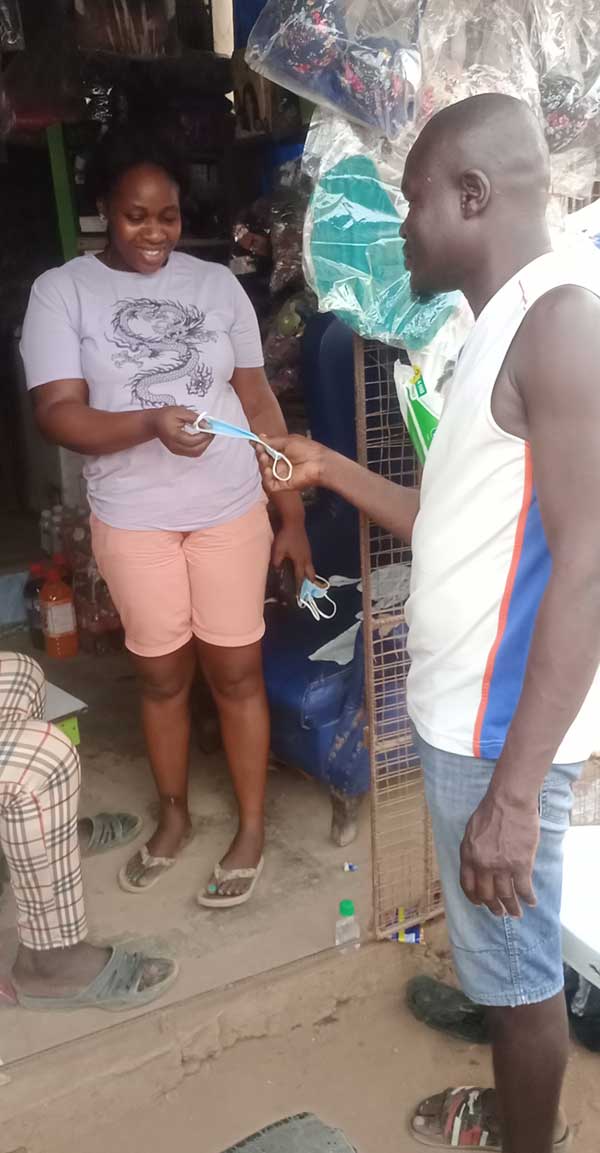
Credit: Eric Dumo
"Most of these customers give the items out to their friends and other members of the public when they go for electoral campaigns. They say it is to prevent disease outbreak.
"So, ahead of the election, I have stocked the items in good quantity in hopes of making good sales," she said.
Access to Quality Health, a Lagos non-profit, has been distributing masks, sanitisers and soaps for free in recent days, says founder Tofunmi Adedeji.
"Nigeria is dealing with too many problems at this time already. We cannot afford to have an epidemic now and that is why we are helping to raise health safety awareness by distributing protective items for voters to use as they go to the polls," she explains.
The Independent National Electoral Commission, Nigeria's electoral umpire, will conduct voting in the country's 774 local council areas. Rotimi Oyekanmi, spokesperson for INEC Chairman, Professor Mahmood Yakubu, said the agency supports all efforts to prevent disease transmission at the ballot.
"We encourage any measure that will help prevent disease transmission during voting.
"We cannot come up with any safety guidelines of our own since government has not declared a pandemic. We do not have such powers as an agency. So, we would simply embrace COVID-19 safety guidelines by encouraging the usage of protective items like nose masks and hand sanitisers throughout the election period," he said.
